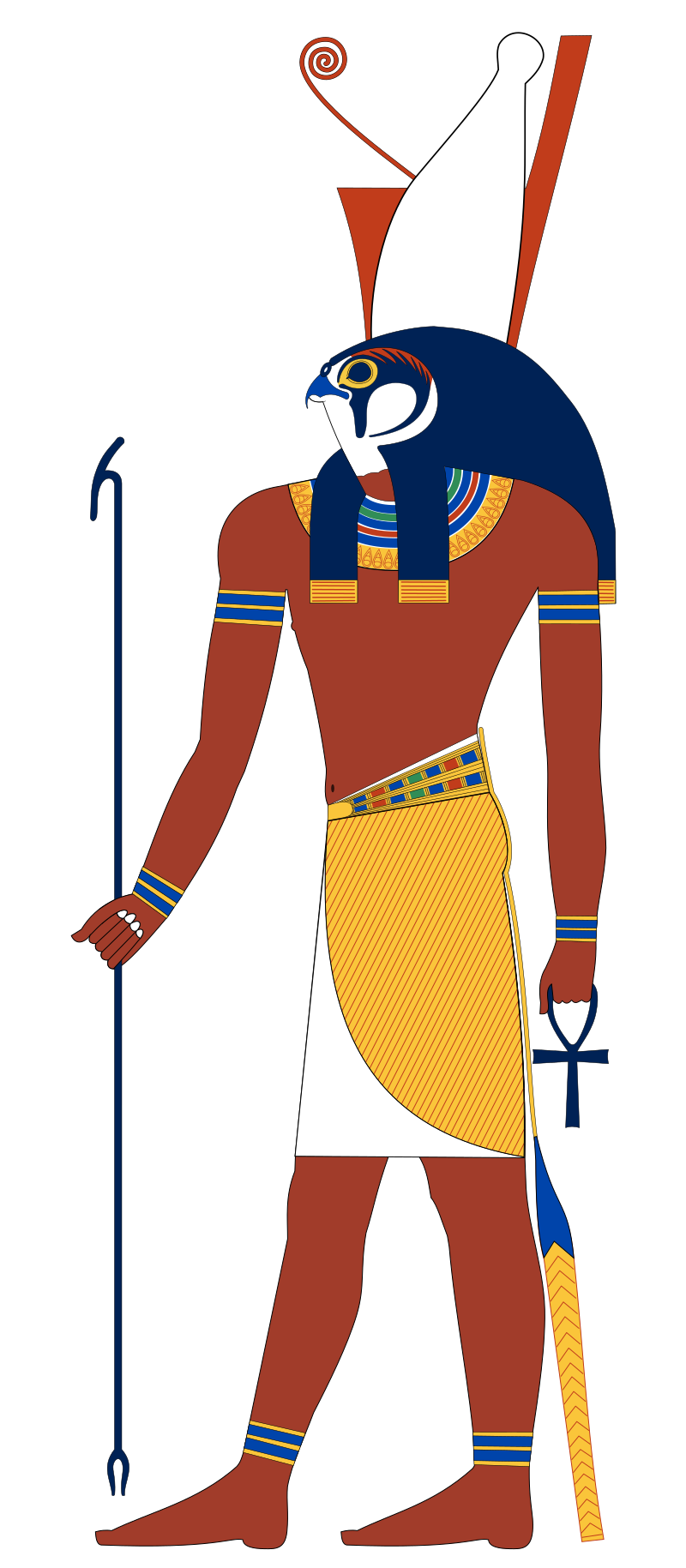Horus

In the realm of ancient Egyptian mythology, few deities stand as prominently as Horus, the falcon-headed god whose significance transcends time. Often associated with the sky, war, and protection, Horus holds a unique place in the pantheon of gods that reflects the cultural and spiritual depth of ancient Egypt. Join us on a captivating journey as we delve into the enigmatic world, unraveling the layers of symbolism and exploring the enduring legacy of this majestic deity.
The Mythical Origins of Horus:
Horus’ story begins with the ancient Egyptian creation myth, where the god Osiris ruled as king. Osiris was murdered by his jealous brother Set, leading to a fierce battle between the two. In the aftermath, Osiris’ son, emerged as a symbol of justice and rightful heir to the throne. This myth symbolizes the eternal struggle between order and chaos, a theme central to ancient Egyptian cosmology.
Symbolism of the Falcon:
Horus is commonly depicted with the head of a falcon, a bird associated with keen vision, speed, and precision. The falcon’s ability to soar high in the sky aligns with Horus’ role as a sky god. His piercing gaze is believed to represent the sun’s power, emphasizing the connection between the deity and the celestial realm. The falcon motif also underscores Horus’ role as a protector and a vigilant force against evil.
The Eye of Horus:
One of the most iconic symbols associated with Horus is the Eye of Horus, also known as the Wadjet eye. This symbol, often depicted as the eye of a falcon, is believed to embody healing, protection, and royal power. The Eye of Horus became a popular amulet in ancient Egypt, worn for its protective qualities. Moreover, the symbol was incorporated into mathematical and medical practices, representing fractions and serving as a metaphor for the regenerative aspects of life.
Horus as a Unifying Force:
Horus played a crucial role in the unification of Upper and Lower Egypt, symbolizing the harmonious coexistence of the two regions. Pharaohs identified themselves with Horus, emphasizing their divine right to rule and their responsibility to maintain Ma’at, the cosmic order. The concept of the living pharaoh as the earthly embodiment of strengthened the social and political fabric of ancient Egypt.
Enduring Legacy:
The legacy of Horus extends beyond the boundaries of ancient Egypt. His symbolism and mythology have inspired countless works of art, literature, and even modern popular culture. The enduring fascination with Horus reflects the timeless allure of ancient Egyptian beliefs and the universal themes embedded in his story.
Conclusion:
Horus, the falcon-headed god, continues to captivate the imagination and curiosity of those who delve into the rich tapestry of ancient Egyptian mythology. Through his mythical origins, powerful symbolism, and enduring legacy, Horus stands as a testament to the profound spiritual and cultural contributions of one of the world’s most iconic civilizations. As we explore the mysteries of Horus, we unravel a tale that transcends time and invites us to contemplate the eternal struggle between light and darkness.





